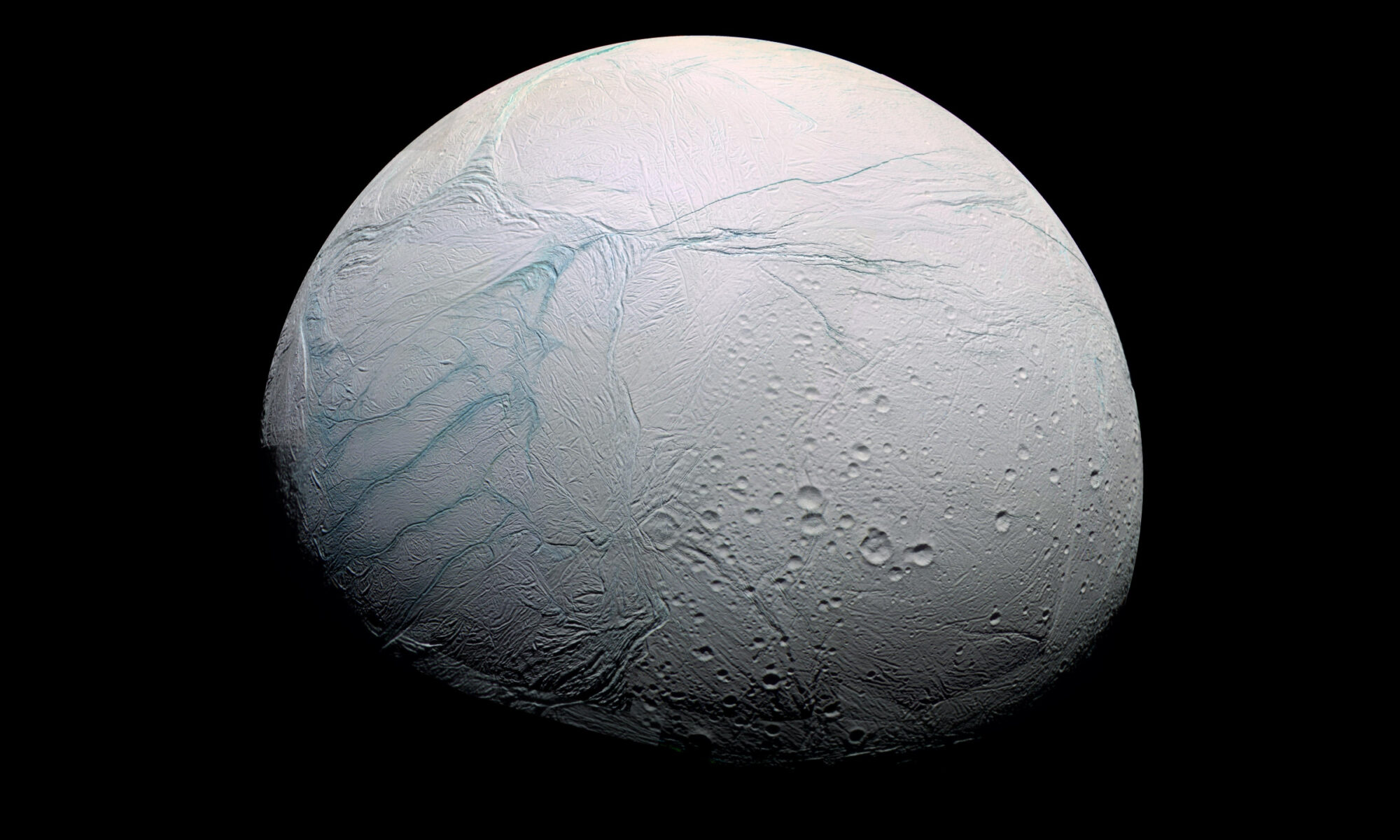The Enceladus Organic Analyzer (EOA) is a novel microchip-based technology enabling analysis of organic molecules in extraterrestrial environments such as that of Saturn’s moon Enceladus.
Enceladus
“[Enceladus is] one of the most scientifically compelling bodies in our solar system.” – NASA
An icy moon off of Saturn’s E-ring, Enceladus is Saturn’s sixth largest moon, one of the brightest objects in our solar system, and home to massive water vapor geysers.
Technology
The Enceladus Organic Analyzer (EOA) is an innovative PMA microchip-based device built for in-situ analysis of ice particles expelled from plumes in the south pole of Enceladus.
A microfluidic capillary electrophoresis system provides sensitive detection of organic molecules gathered at high encounter velocities without organic decomposition.
This gives us the ability to analyze for organic amines, carboxylic acids, PAHs, etc. to determine organic chemical inventory and likely chemical reactions and processing in the subsurface ocean of Enceladus.
News
Without a champion, Europa lander falls to NASA’s back burner
After years of being pushed by the U.S. Congress to follow the Europa Clipper, a spacecraft that will survey Jupiter’s frozen moon, with a lander, NASA has begun to push back. The agency disclosed today that the lander mission, if it happens, will now come no earlier than 2030, 5 years later than Congress mandated. …
Continue reading “Without a champion, Europa lander falls to NASA’s back burner”
ICEE2 Award Granted from NASA to develop Microfluidic Organic Analyzer for Biosignatures (April 1, 2019).
We have received an ICEE2 Award from NASA, starting April 1, 2019, to develop application of our core microfluidic analyzer for the analysis of samples from the Europa surface, called the Microfluidic Organic Analyzer for Biosignatures (MOAB). MOAB is a rapidly maturing miniaturized microfluidic organic chemical and biochemical analyzer that will sensitively analyze Europa surface …
Open Position for Postdoctoral Scholars [UPDATE: POSITION FILLED]
The Mathies Lab and Space Sciences Laboratory at UC Berkeley are seeking a full-time postdoctoral scholar to aid in the development of life-detection technology for astrobiological research! View the file below for the full description and application details.

